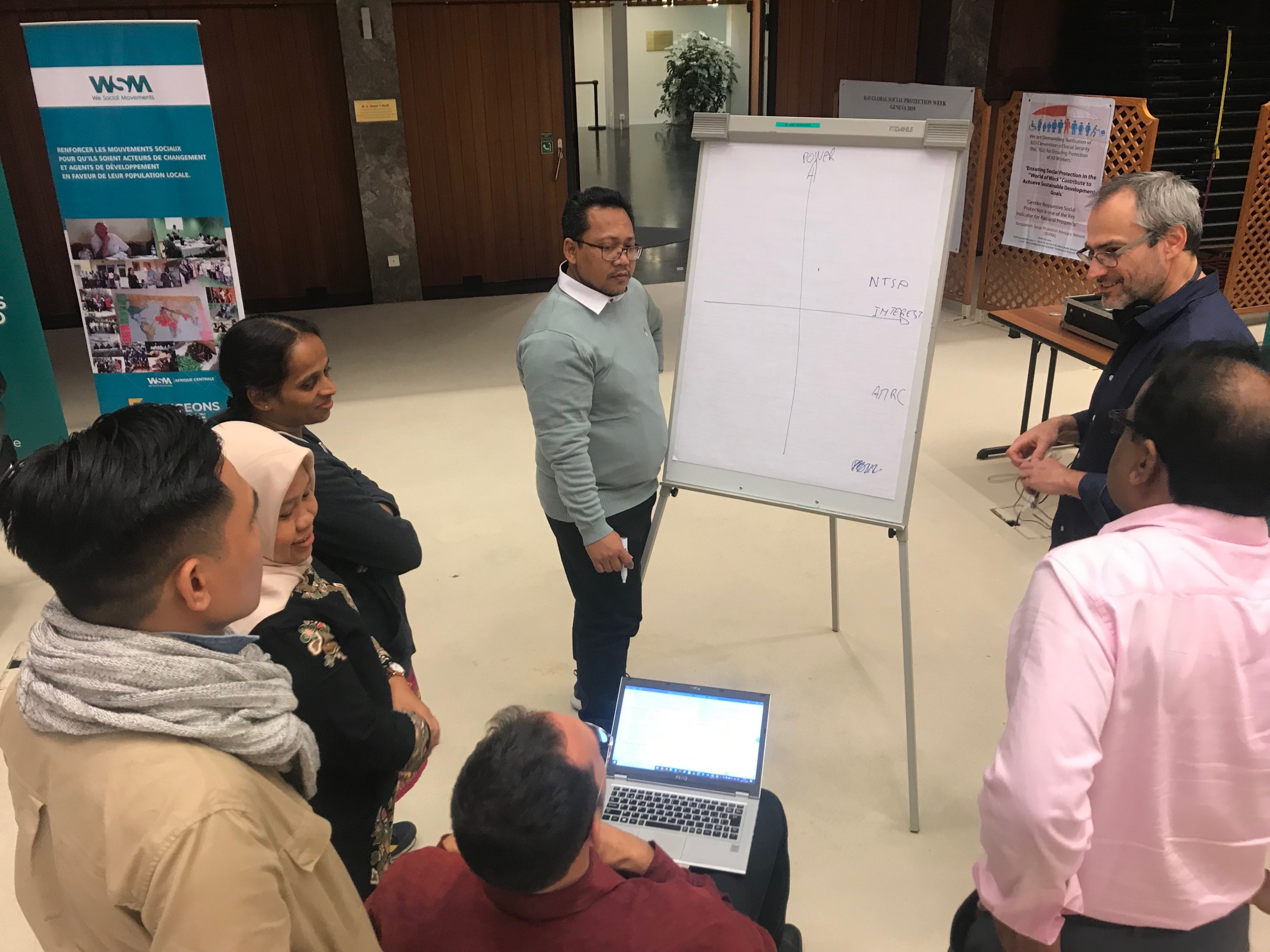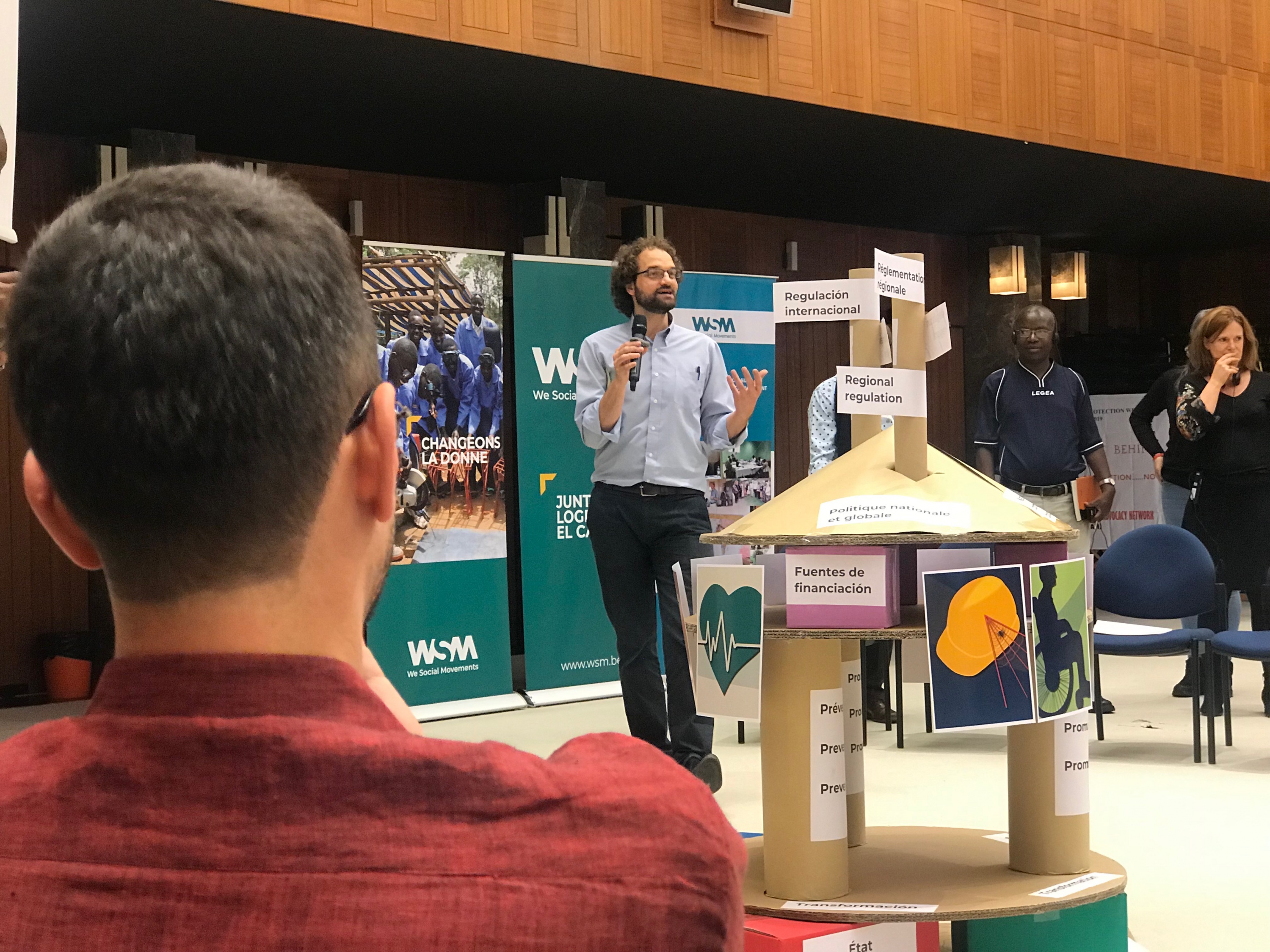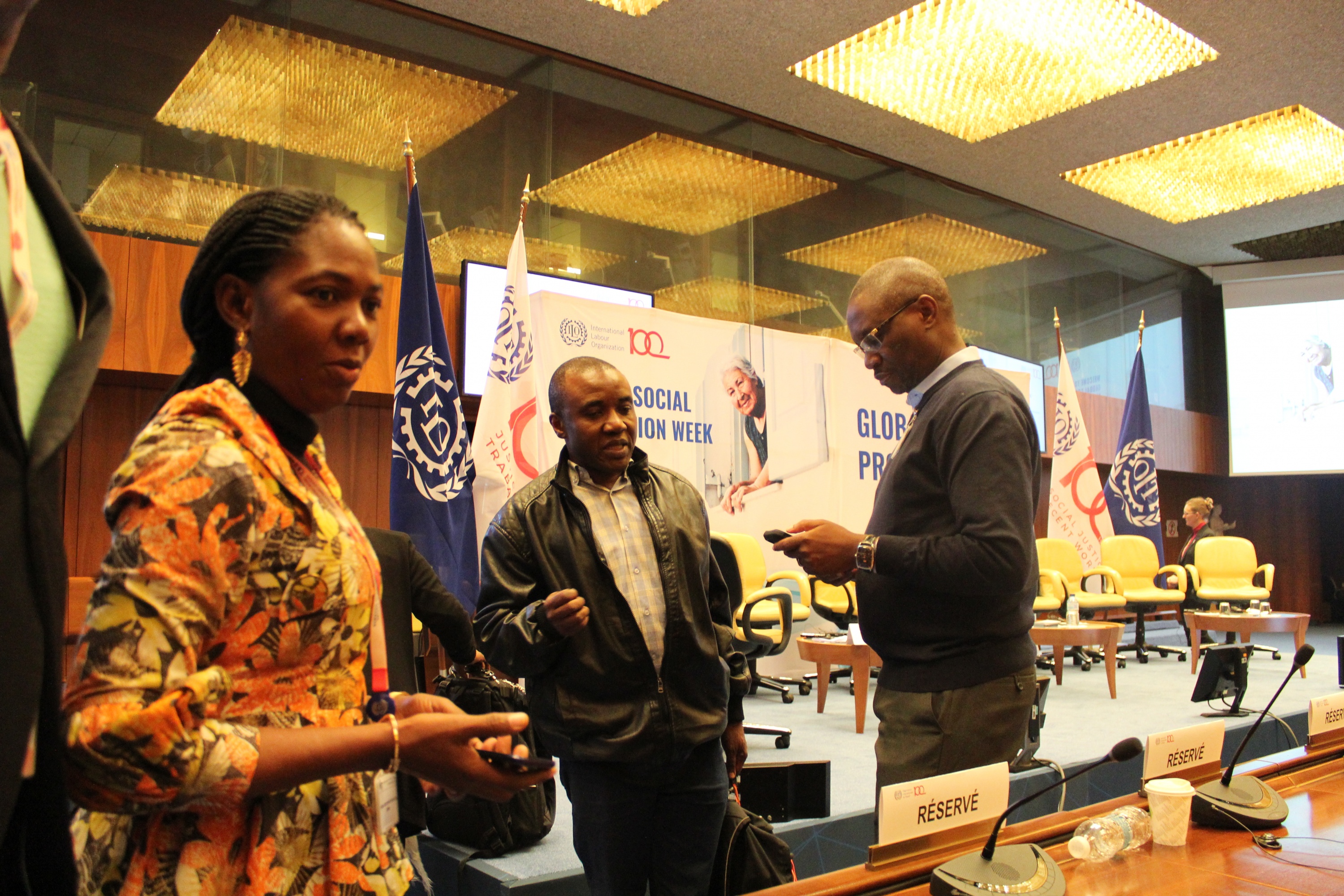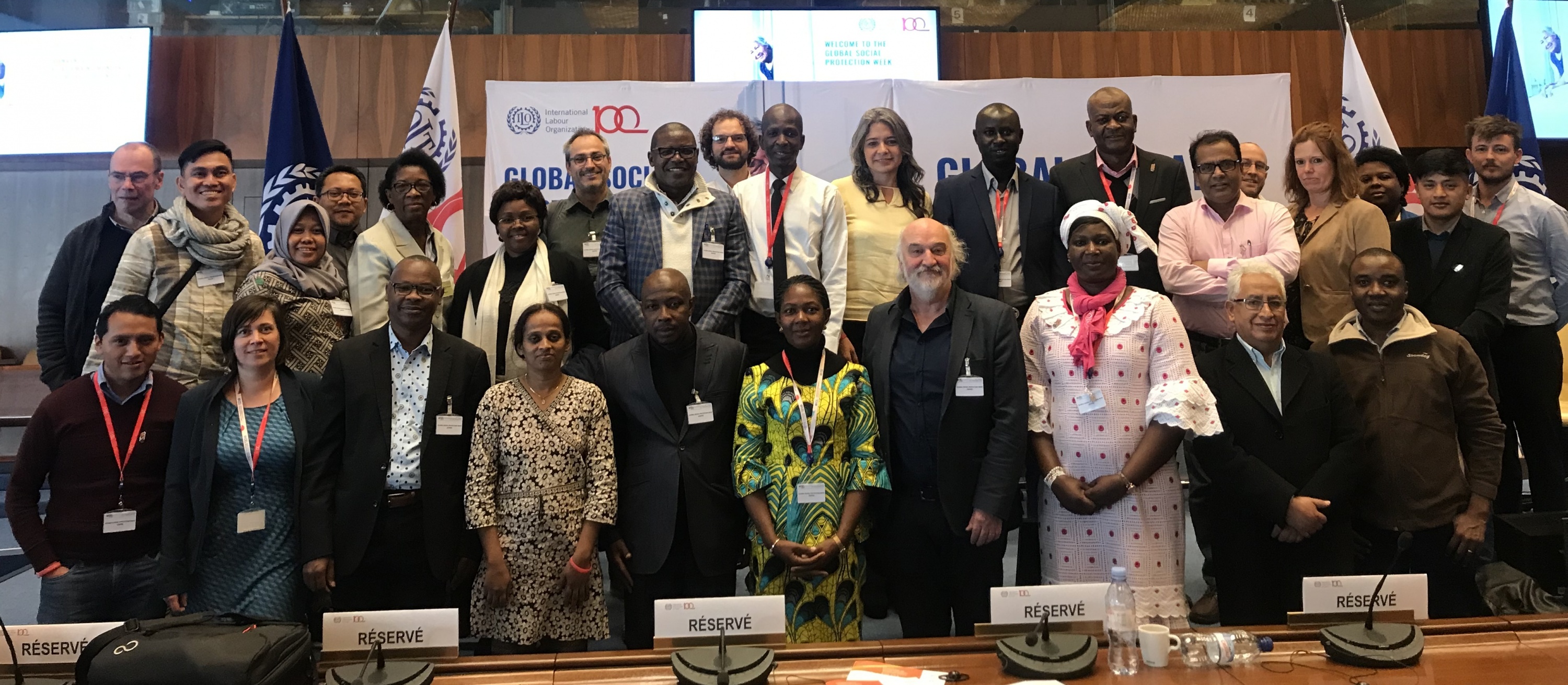WSM has been mandated to involve Nepali civil society in an EU funded pilot project in which ILO and UNICEF work with the Nepali government to promote the social protection floors. These floors focus on four main aspects from the ILO R202: access to health, child allowances, elderly and income for the active population. While the WSM longstanding partners in Nepal, the trade unions, have worked very hard in the past years on the contributory social security act which focuses on the fourth part, this project is the opportunity to reach out to other civil society organisations and social movements to truly adopt the multi-stakeholder approach WSM is known for.
What has happened so far?
After some initial introductory meetings with ILO and UNICEF, WSM convened two stakeholders meetings on 18th and 26th of November with two main partners:
- the Social Protection Civil Society Network (SPCSN), gathering 19 CSOs and
- ITUC-NAC: umbrella organisation of the three Nepali trade unions affiliated to ITUC, which is already the WSM partner in charge of the Nepal synergy.
With the slogan "From bottom to top, from floor to ceiling!", during the
first meeting with 34 participants, we explained the context of this project, and they agreed on a number of values and vision regarding social protection, which came from the
ANRSP Position Paper on Social Protection. They made suggestions of priorities for advocacy (what the Nepali government should do) and activities (what CSOs could do that is most relevant). They also designated a steering group of eight people (two per cluster: health, children, active population and elderly). This Steering Group met twice to draft a work plan that was then shared during the second stakeholders meeting on 26th of November with 42 participants.
The next day, 27th of November, Nepal's National Day of Social Security, the trade unions mobilised for an event with the Nepali government regarding the contributory Social Security Fund, which fell right in the middle of the
ILO Global Week on Social Protection where
WSM also attended with 35 delegates.
At the level of Nepal, at the request of UNICEF, WSM also provided feedback on draft ToR for a consultant to be hired by UNICEF at the request of the National Planning Commission to work on an Integrated Framework for Social Protection.
Who has been involved?
This is the list of some of the 54 organisations attending, stakeholders of the (still informal) Nepal Network on the Right to Social Protection: Action Aid Nepal, Alliance for Social Dialogue, ANTUF, Children and Women in Social Services and Human Rights (CWISH), Collective Campaign for Peace (CoCAP), Anamnagar, Community Self Reliance Center (CSRC), Dalit NGO Federation, Federation of Community Forestry Users Group, Food-first Information and Action Network, Freelancer, Friedrich Ebert Foundation (FES), General Federation of Nepalese Trade Unions (GEFONT), Himalayan Nepal Foundation, Home Based Workers Concern Society Nepal, HomeNet Nepal, Integrated Development Society - Nepal, International Trade Unions Confederation - Nepal Affiliated Centers (ITUC-NAC), Jagaran Media Center, Jagriti Child and Youth Concern Nepal, Japan International Labour Foundation, Loo Niva, Khokana, MAG, Mahila Atma Nirvarta Kendra (MANK), Media Advocacy Group, MWCSN, Nari SewaKendra (NSK), National Labour Academy, National Senior Citizens Federation (NASCIF), NDWA, Nepal Disability Women Association, Nepal Participatory Network (NEPAN), Nepal Public Health Foundation, Nepal Trade Union Congress (NTUC), Nepal Youth Foundation, NFWLHA, NGO Federation of Nepal, Niti Foundation, NNDSWO, Oxfam UK Nepal, Plan International Nepal, PossibleHealth, SAAPE, Sankalpa Nepal, SARTUC, Save the Children, Shakti Samuha, Social Protection Civil Society Network (SPCSN), Sustainable Nepal Management Consultancies, Swatantrata Abhiyan Nepal, Tuki Association Sunkoshi and Women for Human Rights (WHR).















